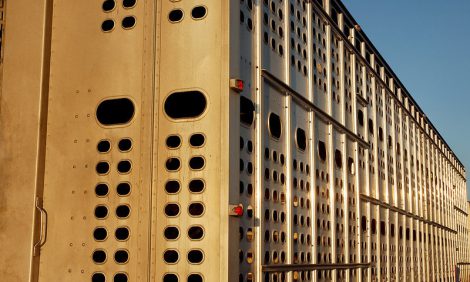



“Fear Leads to Slavery”: French Post-Quota Advice
FRANCE - A post-quota Europe needs fair contracts for its dairy farmers, expert insight on production and markets and an awareness of corporate integration taking hold.This is according to the French Organisation of Milk Producers (OPL), which says the new dawn of quota limits means contract systems now determine production.
Such “contractualisation” is fine if contracts are balanced, but OPL President, Véronique Le Floc'h, says current obligations, constraints and lack of a minimum price make this “unacceptable”.
French dairy farmer Olivier Chemin was quoted by the European Milk Board (EMB) saying contracts are “definitely not getting better”.
“We are pressured into signing unfair contracts in which the producer has no rights,” he said. “Those who resist are threatened with an end to the collection of their milk at more or less short notice.”
In terms of farmer flexibility and contract options, Mrs Le Floc’h said case law remains “rather vague”.
She said: “It is reasonable to expect the notice to be at least equal to one month for each year of supply. For example: 15 months’ notice for 15 years of supply from receipt of a registered letter.
“This allows time for reflection and discussion. Fear leads to slavery, do not accept just anything.”
Amid individual member state fears are wider concerns on market volatility, which are not unfounded, according to a new Rabobank report looking at EU dairy’s “new dawn”.
EMB President, Romuald Schaber, suggested times of market saturation should see penalties for farms producing more and bonuses for farms which can respond and produce less.
Expansion has already lifted production 12 million tonnes between the announcement of quota removal in 2006 and 2014. The report said this is a “large proportion” of additional capacity.
Production will become further concentrated in the heartland regions of northern and western Europe, where forage is typically plentiful, Rabobank added.
And while the strictures of land for forage and environmentalism are making production costs across key regions converge, Europeans must press for efficiency.
“Despite Europe continuing to have a conducive climate, continued effort will be required to ensure Europe is competitive at prices set by international markets”, explained Rabobank Analyst Kevin Bellamy.
The report predicted familiar dairy demand growth rates at a compound two per cent a year to 2020.
Rabobank said a competitive EU dairy sector needs funding, intensification and government support to compete.
Michael Priestley
News Team - Editor
Mainly production and market stories on ruminants sector. Works closely with sustainability consultants at FAI Farms



